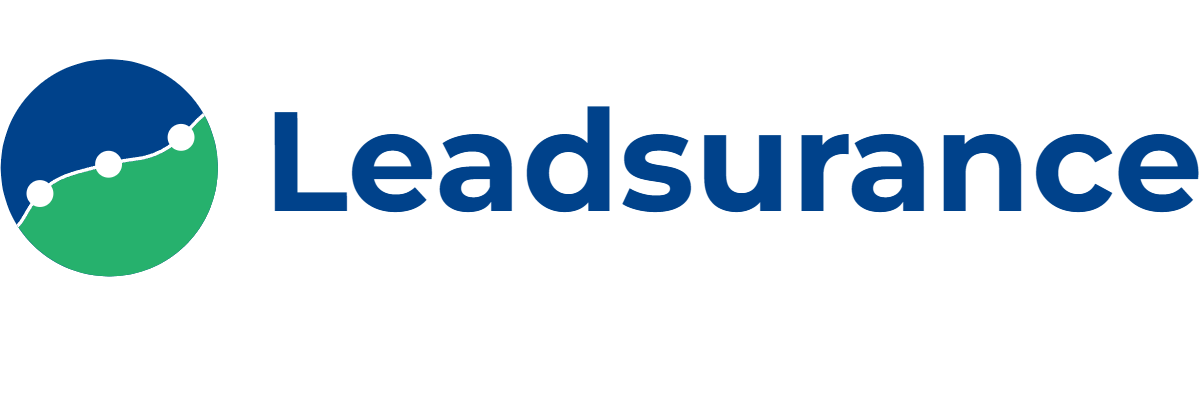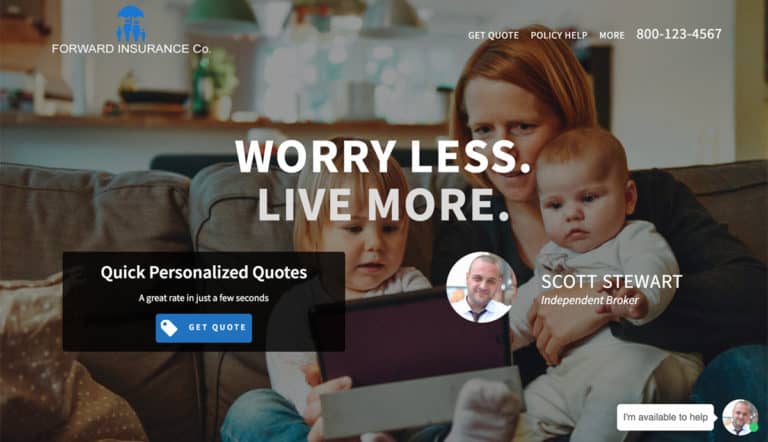Learning how to become an insurance agent is an appealing opportunity for both those starting out their careers as well as established professionals.
There are successful insurance agents who work full time at selling insurance and then there are successful agents who also hold other jobs and run other businesses while selling insurance.
It can be a flexible career depending on how you approach it.
The job itself is rewarding by helping clients and the compensation is competitive making for a lucrative income.
Plus, you can become a licensed insurance agent in just a few steps that won’t take long to complete. In fact, some people complete them in just a few weeks.
Today’s post will share the details on how to become an insurance agent.
So, if you think you’re interested in selling insurance then learn how to become an insurance agent by following these steps. Or if you know someone who’d make a great insurance agent, then share this guide with them.
Step 1: Decide on Becoming a Captive or Independent Agent
There are two main distinctions between agents and there is no wrong choice amongst them. However, as a future agent, this will define your career path.
Captive insurance agent
As a captive insurance agent, you will be allowed to only work with one company. This will carry the benefits of working with big companies: a clear organizational structure, thorough training, mentors, and a steady salary. You will have more time to spend on your customers and build a strong and long-lasting relationship with your clients.
However, you won’t be able to work with other companies’ products or policies. Usually, your employer will ask you to sign a non-compete agreement that will be valid for a specific period.
Independent insurance agent
In contrast as an Independent agent, you will be able to operate with multiple entities. Also known as brokers, calculating different policy quotes from different companies to find the best market price. Instead of earning a monthly salary, an independent agent will receive commissions from the policies sold.
Independent agents will have the freedom of organizing their schedules as there is no organization controlling over them. However, this means they should be able to stay highly motivated, prepare their own marketing materials, and search for their own customer portfolio.
Learn more about how to become an independent insurance agent.
Step 2: Choose between a Commercial or Personal Insurance License
Nowadays the different types of policies are very extensive. However, we can make two big distinctions between commercial insurance and personal insurance.
Personal insurance is a set of policies covering individuals and families. Including vehicles, home insurance, health insurance, and life insurance.
Commercial insurance provides services to companies and businesses. The most common package would be Building, Contents, Theft, Glass, and general property. Yet, this category ranges from Public Liability Insurance to Business Interruption policies.
Step 3: Choose Between a Life/Health or P&C license
Once you decide which type of insurance products and policies you will be offering its time to start the process of getting licensed.
You cannot operate or sell insurance without one, the industry is highly regulated and complex in some cases. Operating without one could face legal actions.
You will have to bear in mind that there are multiple different licenses depending on the type of policies you’re planning on selling. Moreover, license names change depending on the state you live in.
The two main types of insurance licenses are:
- Property and casualty license: If you are interested in commercial insurance, this is the license for you as it encompasses auto, home, and business. It enables an agent to sell to both individuals and commercial businesses.
- Life, health, and accident license: If you are looking to work with individuals, this license covers life insurance, accidents, and health insurance amongst others.
Step 4: Complete Prelicensing Classes and Licensing Exam
Before taking the exam you must attend pre-licensing classes either online or through an in-person course. The hours required vary depending on the state, courses vary from one day long to up to 40 hours in some cases.
Once you finish your pre-exam course you will have to take the official insurance exam. You have to book an appointment where you will have to choose a date and time to take the test. This exam is online and will be supervised by an outside company.
Just don’t forget to take your pre-course completion certification with you that day as you might need to show it before starting the exam.
If you successfully completed the pre-course and studied you shouldn’t worry. Just go prepared for the date and time selected, you’ll be taken to your computer by the examiner.
The exam’s format is usually a multiple-choice where you’ll have the grade once you’re done with the last question. If you don’t pass the first time, don’t worry you can reschedule the exam and take it again.
Following this link you will find resources to pre-exam preparation material.
Step 5: Submit State License Application and Complete a Background Check
All licenses are issued by the state licensing department.
After passing the exam and submitting your state licensing application, a background check will be conducted by the state. If there aren’t any problems, your license will be issued.
However, if there is any issue the licensing department will reach out for any further questions. Once your application is approved you will be notified and you will be able to start operating.
Step 6: Interview With Insurance Companies
Before you start selling insurance products you will have to be appointed by the insurance company or companies you want to work with.
The process is extremely simple, insurance companies will provide an application form where you will need to fill in your personal information and license number. After this documentation is received the company will give you an appointment to interview for a position selling insurance.
Once accepted, you are granted binding authority and this will be noted on your license.
“A binding authority is an agreement whereby the “cover holder”, often a broker but sometimes an underwriting agency, is authorized in accordance with the terms of the authority to accept risks on behalf of an insurer and to issue documents that evidence the insurance without the need for any further approval on behalf of the insurer.”
Step 7: Build Your Client Portfolio
So here is where the fun begins! You’re all set to start your business and sell insurance policies.
The first step to keep your business going is to start finding clients. The easiest way is to start selling insurance to your friends and family. This way you will gain real-life experience and start feeling more confident about the processes and how the system works.
Once you have some experience, feel comfortable with quoting new coverage, and the processes, it is time to start promoting your business.
In order to start marketing and promoting your insurance agency, you will need the following:
- to define your target audience and your specialty
- an insurance website that is useful for your target audience
- a brand strategy to help guide all of your marketing efforts
- create social media pages for your business
It can really help to make a marketing checklist for your insurance agency.
Depending on your segment, you would want to learn a bit about digital marketing and how to increase the traffic to your website or how to do some PPC advertisements in google or Facebook ads.
If your target buyer doesn’t use the internet, then you might want to consider local advertising options instead that could reach them on a different channel like the newspaper.
Once you have worked with some clients, ask them for a review. On your website’s home page it is always good to include some of your client’s reviews, this will make new customers feel encouraged to work with you.
Step 8: Get Insurance Coverage for Your Business
As a broker or insurance agent, you know that avoiding unnecessary risks is extremely important. Having your own business insured will help keep your business and reputation safe.
There are three main kinds of coverage to consider:
- General Liability insurance: It will cover any medical expenses or attorney fees from injuries and property damage that happens in your business. These cover you and your company from damage resulting from your products or services. Some unexpected injuries like a client tripping over the stairs could end up in a liability claim.
- Errors and omissions: For most insurance companies E&O will be required even before you are allowed to write policies. It is immensely important as it will protect your clients against errors you or your staff may make. For example, you may omit or have a typo on a license plate. In this case, your E&O coverage will take care of the client.
- Worker’s compensation: This type of coverage is required for businesses in most states as it will protect your company from employee claims. Imagine one of your employees has an accident while at work, this coverage will pay for a portion of salaries and medical bills.
If you are starting out without any employees then you won’t need workers comp right away. However, most insurance agents will want general liability insurance as well as E&O coverage as soon as they start their business.
Wrapping Up
If you enjoyed this article and are considering a career in the insurance industry please check out our other helpful articles for insurance agents to generate more insurance leads and manage leads using our free CRM.
Have questions or feedback about becoming an insurance agent?
We would love to hear about your experience and talk with you about your questions in the comments below!







